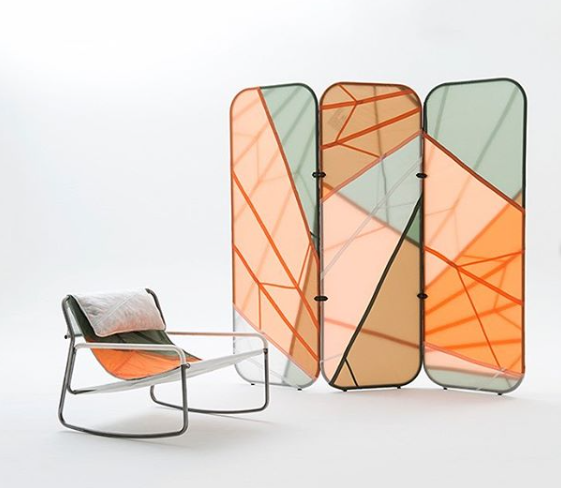It’s World Environment Day 2020, and here are some products designed with Earth in mind! The demand for sustainable product is only going forward, and more designers are stepping up their game to create a greener and better future for the environment. Some focused on re-purposing materials into new products, some go to the extent of developing new breakthrough eco-materials, either way, here are some incredible projects that would pave the way for us to consume products in a more sustainable way.
Image Credit: Core77
1. SELF HEALING BRICKS
Grown from bacteria, this brick is lightweight, fireproof, acts as a natural insulator. Developed by Wil Srubar and his research team at the Department of Civil, Environmental and Architectural Engineering at Colorado University Boulder, they imagined a future in which suppliers could mail out sacks filled with the desiccated ingredients for making living building materials. They too discovered that they could make their materials reproduce. Break it in bricks in half, and each of half is capable of growing into a new brick. Cool right? Read More
Image Credit: www.pendulummag.com
2. CHOP VALUE: RECYCLED BAMBOO CHOPSTICKS HOMEWARE
Designed by Felix Böck, this idea came to him over dinner as he was sharing his frustration over the amount of waste generated every year and that no one is doing anything about it. Repurposing bamboo chopsticks from eateries into a new product usage extends the life value of an everyday product that would otherwise have ended up in a landfill. These chopsticks are now being converted into furnishings and home objects that can be found in homes, restaurants and beyond. Find out more.
Image Credit: www.designboom.com
3. LAYER and RÆBURN: THE CANOPY COLLECTION
A collaboration between LAYER and RÆBURN, this Canopy Collection, is a family of four rocking chairs and two screens made from steel frames and recycled parachute material. launched during 2019’s london design festival in RÆBURN’s new store in central London, the collaboration brings together the respective brands passion for sustainability. Learn more.
Image Credit: www.thedieline.com
4. SOAP BOTTLE
Replacing soap bottles with soap itself is a brilliant idea to tackle single use pastic. Designed by Berlin-based designer Jonna Breitenhuber, these bottles are slow dissolving and made out of functional soap with considerations to leak-proof package that is durable enough to withstand shipping. Learn more.
Image Credit: www.dezeen.com
5. SOAPACK
Another ‘soap bottle made out of soap’ project you should check out – Soapack. Designed by post-graduate student Mi Zhou, it is similar to ‘Soap Bottle’, the Soapack has an elegant touch in its aesthetics. You can’t help but to love the tiny intricate designed bottles with soft pastel gradient colours! A perfect mix of beauty and sustainability. Learn more.
Image Credit: www.dezeen.com
6. SUSTAINABLE ECONOMY MEAL TRAY
Industrial design studio PriestmanGoode changed the idea of a single-use plastic tray into a ground coffee beans and rice husk product for the aviation industry. Developed as part of an exhibition at London's Design Museum titled Get Onboard: Reduce. Reuse. Rethink. This aim to tackle to problem of waste management with an estimated of 5.7 million tonnes of cabin waste on global passenger flights each year. In a bid to reduce weight and eliminate plastic waste, the studio replaced the materials used to make the meal tray and its various components with other edible and commercially compostable materials. Learn More.
Image Credit: www.florumfashion.com
7. TERRAZZO WIRELESS CHARGING PAD
A creation by Bentu Designs, aims to provide a solution for the stone industry waste, these gorgeous clean wireless chargers have opened a door for the digital world in becoming more sustainable. The beautiful colors come from a mixture of recycled cement waste, demolition leftover concrete, and leftover quartz stone aggregate. Learn More







